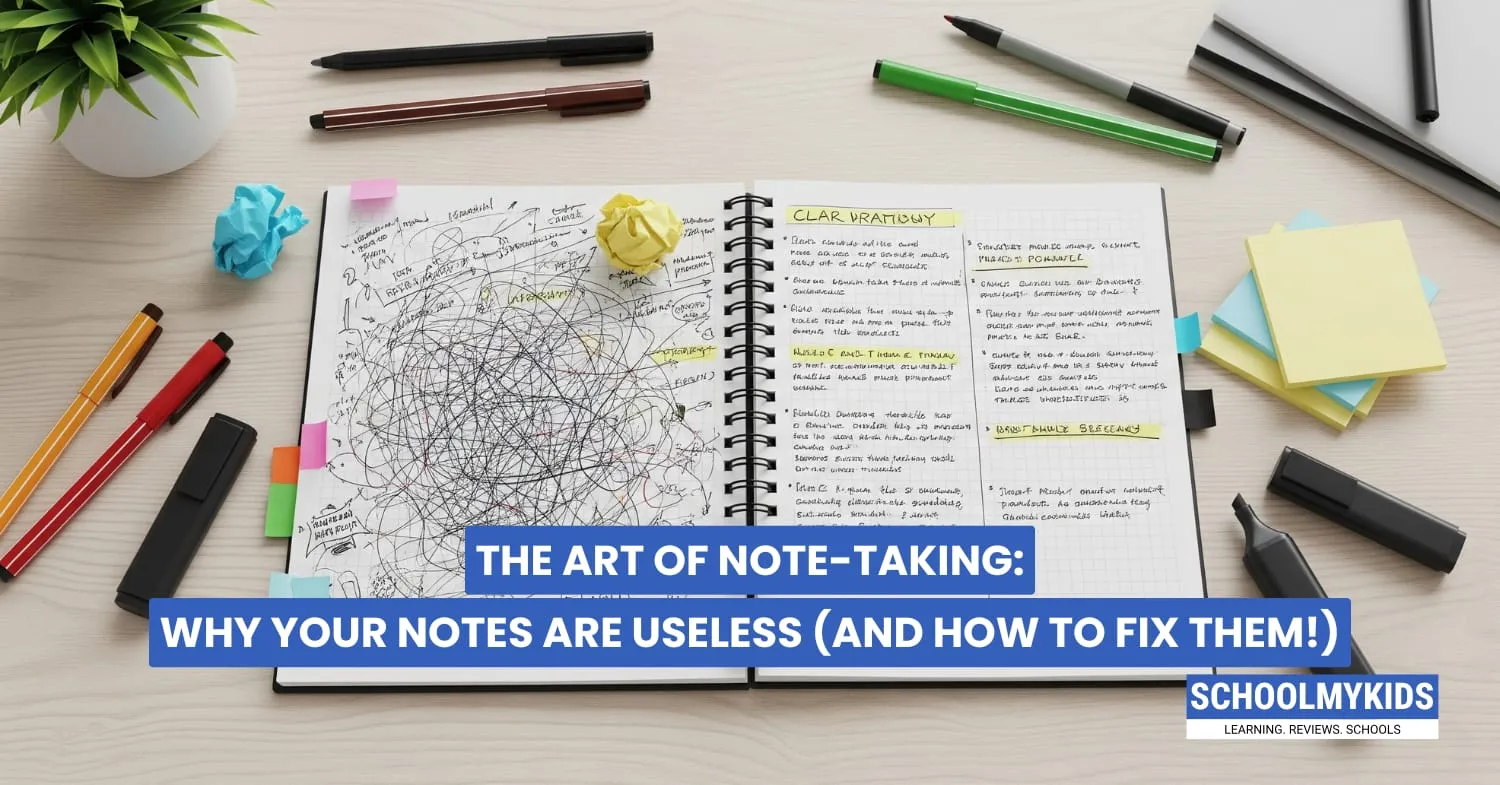Let's be honest, most student notes are pretty terrible. This isn't meant to be harsh, but if you're like most students, your notebook is either completely empty or filled with random scribbles that make zero sense when you look back at them.
Here's the thing: nobody really teaches students how to take notes properly. Most people just assume they'll figure it out along the way. But good note-taking is actually a skill, and once you get it right, studying becomes so much easier.
Why Most Notes Are Completely Useless
- You're trying to write down everything: Stop being a human photocopier! I see students frantically writing every single word their teacher says. Then they wonder why their hand hurts and they can't keep up. Your teacher may talk at 150 words per minute, but you may only write about 20. Do the math. It's impossible.
- You're not actually listening: When you're busy scribbling down every word, you're not processing what's being said. You become a mindless writing robot instead of actually learning. That's why you look at your notes later and think, "What does this even mean?"
- Your notes look like a hot mess: No organization, no structure, just words thrown onto paper. Different colors everywhere with no system. Good luck finding anything when exam time comes around.
- You never look at them again: When's the last time you actually reviewed your notes? Most students take notes, shove them in their bag, and forget they exist until the night before an exam.
How to Actually Take Notes That Work
- The 80/20 Rule: Only write down the most important 20% of what you hear. Focus on key concepts, examples, and anything your teacher emphasizes. If they repeat something or write it on the board, it's probably important.
- Use the Cornell Method (but make it yours): Divide your page into three sections: notes on the right, key points/questions on the left, and a summary at the bottom. Don't get too hung up on making it perfect; just use the basic structure.
- Write like you're texting a friend: Use your own words, abbreviations, and shortcuts. Your notes don't need to be in perfect English. "Photosynthesis = plants make food from sunlight" works better than copying the textbook definition word-for-word.
- Leave space: When something doesn't make sense, write "CONFUSED" or put a big question mark. Come back to it later or ask about it. Don't just skip over it and hope it goes away.
Modern Note-Taking for Modern Students
- Mix digital and analog: Use whatever works for you. Some people love their iPads, others swear by good old pen and paper. Many successful students use both, like handwritten notes for math and science, and digital for everything else.
- Record when allowed: If your teacher is cool with it, record lectures on your phone. Then you can actually listen during class and fill in gaps later. Just don't use this as an excuse to zone out completely.
- Connect your notes to real life: Write down examples that make sense to you. If you're learning about economics, relate it to why concert tickets are so expensive. Personal connections stick way better than abstract concepts.
The Review Game-Changer
Here's the secret sauce: review your notes within 24 hours. Just 10 minutes of looking over what you wrote will help you remember it way better. Then review again after a week, and once more before the exam.
Make it a habit to rewrite or organize your notes when you get home. This isn't busy work – it's actually one of the best ways to learn. When you rewrite something, you're forcing your brain to process it again.
Quick Fixes That Make a Huge Difference
- Date everything (seriously, future you will thank you)
- Use bullet points instead of paragraphs
- Highlight or star the most important stuff
- Draw simple diagrams when possible
- Write the questions you have right in your notes
Conclusion
Good notes aren't about having perfect handwriting or color-coding everything. They're about capturing the important stuff in a way that makes sense to you, then actually using them to study.
Start small, like pick one class and try these methods for a week. You'll be amazed at how much easier studying becomes when your notes actually help instead of confusing you.
Your future self (especially during finals week) will definitely thank you for putting in the effort now.








Be the first one to comment on this story.